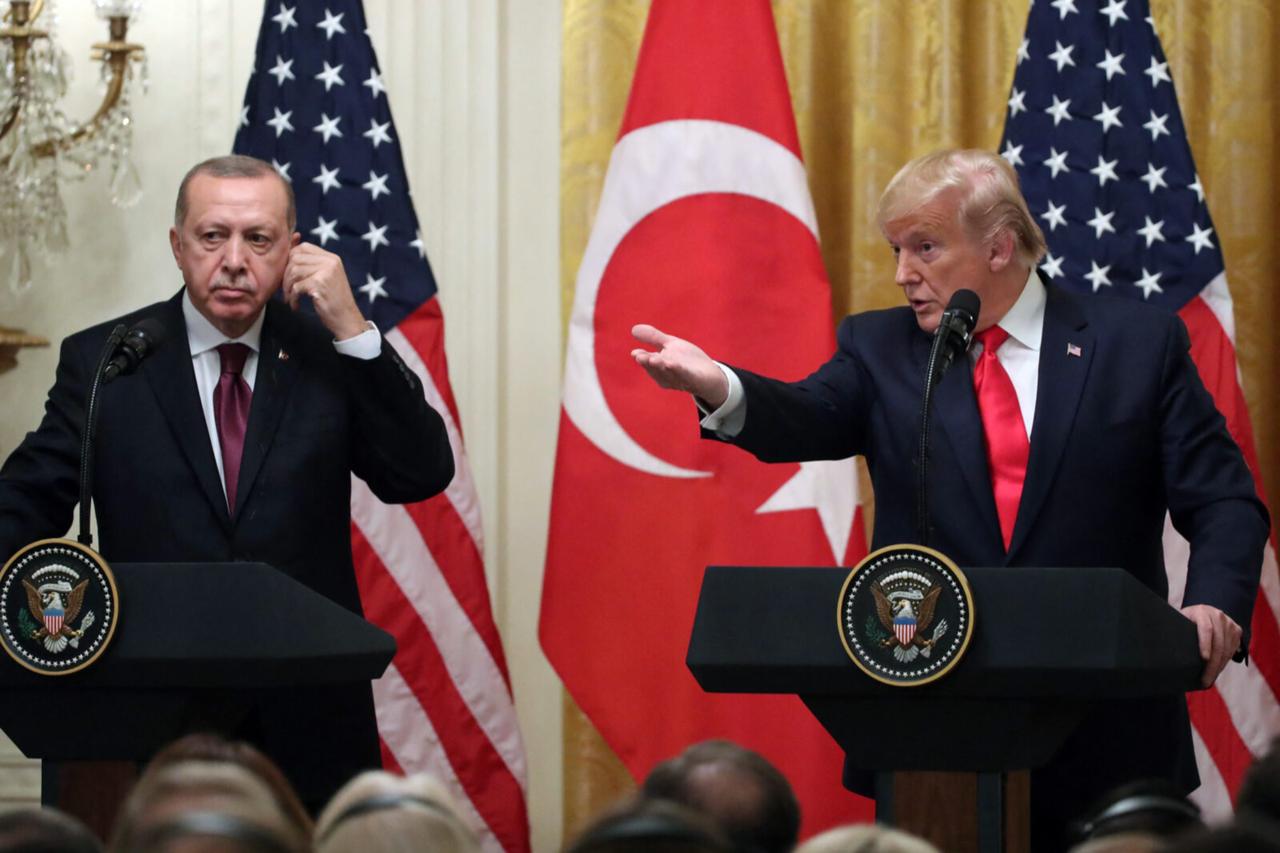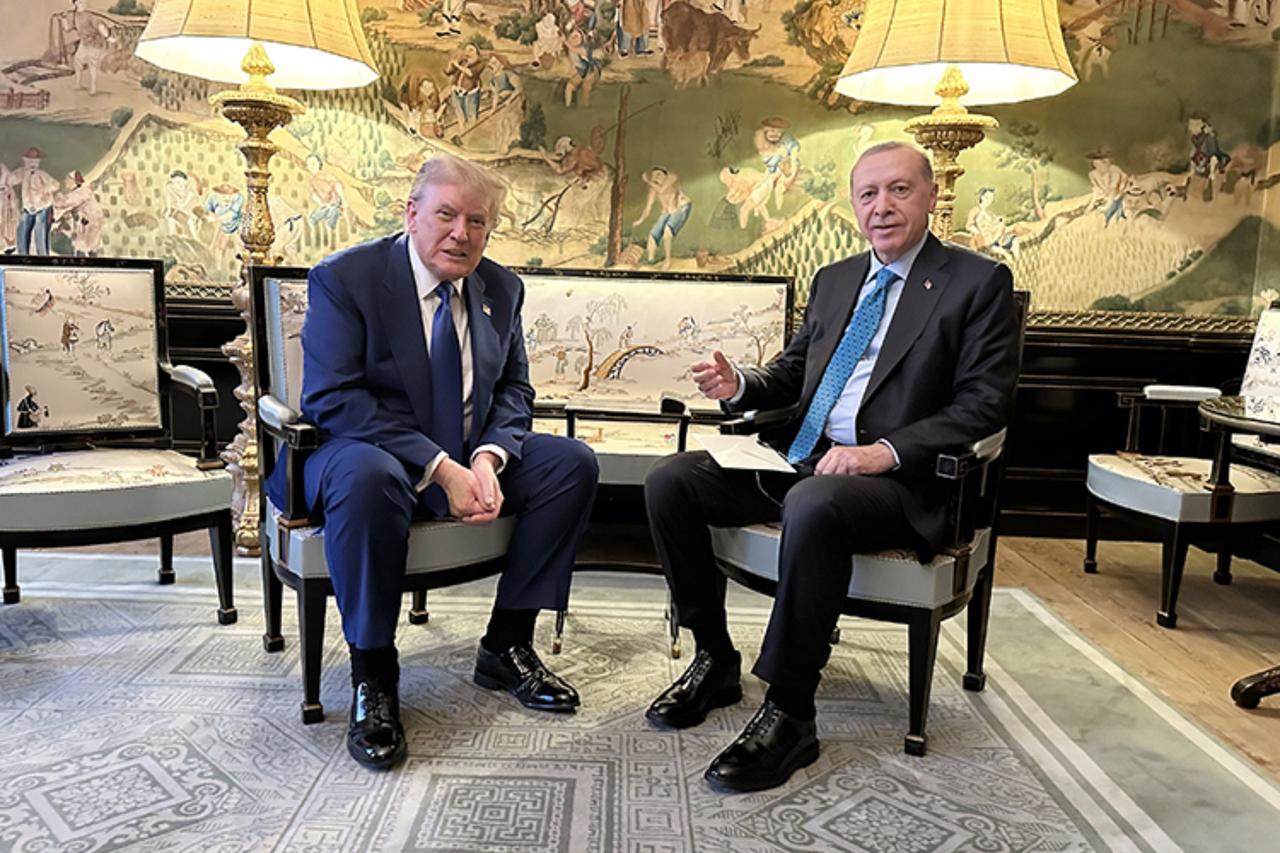
When Turkish President Recep Tayyip Erdogan sits down with U.S. President Donald Trump on Sept. 25 in Washington, the agenda will be crowded with both transactional deals and deeper geopolitical disputes.
Both leaders have previewed the meeting in terms that stress partnership and personal rapport, but beneath the rhetoric lies a list of hard issues ranging from fighter jets and trade to Syria, Ukraine, NATO, and Israeli disregard for rules in the region.
Trump has been explicit about the kinds of deals he hopes to showcase. He said discussions will continue on Türkiye’s potential return to the F-35 program, from which Ankara was expelled after it purchased Russia’s S-400 missile defense system. He also emphasized possible sales of F-16 jets and Boeing aircraft, voicing optimism that negotiations will reach “a positive conclusion.”
For Türkiye, these negotiations are about more than procurement. Restoring access to the F-35 program has beyond symbolic weight after years of friction, while modernizing the air force through new F-16s is an urgent operational priority. Erdogan, for his part, underscored on social media that the talks would cover trade, investment, and defense industry ties as part of a “comprehensive strategic relationship” with the United States.
If defense contracts represent the transactional layer, the more volatile political layer is likely to emerge over Syria and Israel. Beyond hardware and invoices, Türkiye’s priorities point to problems that are less easily settled at a bilateral summit.
Ankara wants reassurance about how U.S. policy will treat Turkish security concerns in northern Syria—notably the presence and future posture of the YPG/PYD, which Ankara regards as an extension of the PKK. Any U.S. reluctance to share or coordinate on that file will be a persistent irritant.
At the same time, recent reports and diplomatic signals about Israeli security arrangements in Syria and continuing Israeli strikes will figure in Ankara’s calculus about how Washington balances Israeli security claims with regional stability.
Türkiye’s role in mediation efforts around Ukraine—particularly its control over and security responsibilities in Black Sea grain corridors—also gives Ankara leverage in conversations about wider East-West tensions. Washington will want to assess how a sharpened U.S.–Türkiye relationship might serve American interests in de-escalation or at least in crisis management.

Another likely point of discussion is Türkiye’s role in the Ukraine war. As both a NATO member and a Black Sea power, Ankara has played a mediating role in grain shipments and ceasefire initiatives. Washington views Türkiye’s engagement with Russia with mixed feelings: useful in keeping channels open, but problematic in terms of sanctions enforcement and alliance discipline.
Broader NATO questions are also bound to surface. European allies are pressing for tighter cooperation on air defense and for responses to Russian airspace violations. Türkiye, which has often charted an independent line within NATO, will be one to be in consultation to show how its security posture fits within allied priorities.
As Harun Resit Aydin, an analyst and former NATO intelligence officer, put it: “I don’t expect major decisions to come out of this meeting, but at the very least it’s a good opportunity to unlock some of the blocked doors.”
Israel’s recent positioning in the region is expected to be the most divisive issue between the leaders. Erdogan has framed his visit to the United States around participation in a Palestine-focused conference alongside the U.N. General Assembly. He has argued that the meeting with Trump can “contribute to ending wars and conflicts” and deepen bilateral cooperation. But the two leaders are unlikely to see eye to eye on Gaza.
Trump has consistently aligned himself closely with Israel, rejecting calls for Palestinian recognition and offering unqualified support to the Netanyahu government. Erdogan, by contrast, has pushed for stronger international pressure on Israel and voiced support for Palestinian statehood. This gap all but guarantees that while trade and defense issues may generate tangible agreements, Gaza will expose fundamental disagreements, and even likely not be touched upon in front of the media.
Each leader must also answer to domestic constituencies. Trump can frame any commercial wins as evidence of dealmaking and economic competence; Erdogan needs to show that strategic autonomy and defence industrialisation remain intact even as Ankara deepens ties with Washington. That means public rhetoric will be upbeat, but the fine print—transfer of sensitive technology, parliamentary approvals in Türkiye, and U.S. legal constraints—will determine the depth of any breakthrough.
The Erdogan-Trump encounter is being shaped by a familiar dynamic. Both leaders highlight their personal relationship— Trump said he has “always had a very good relationship” with Erdogan and looks forward to seeing him—but each also has domestic needs. For Trump, large aircraft orders and defense contracts serve as proof of deal-making success. For Erdogan, the optics of being treated as an indispensable ally and partner in Washington bolster his argument for Türkiye’s strategic autonomy.
That leaves the summit poised to produce agreements that are transactional rather than transformational. Military sales and trade packages are achievable; convergence on Syria, Israel, or Gaza is not. The question is whether both sides can translate short-term deals into a more durable framework, or whether the meeting will simply underscore that U.S.–Türkiye relations remain defined by cooperation on commerce and defense, and division on politics and strategy.